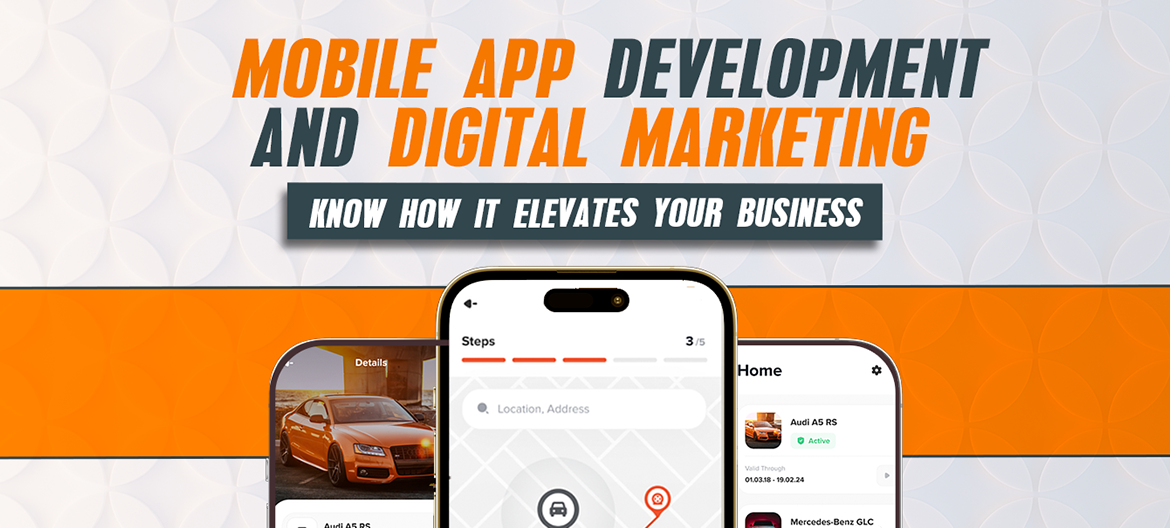The Dynamic Duo: Mobile App Development and Digital Marketing
In today’s tech-savvy world, mobile apps are no longer just a luxury; they have become an integral part of our daily lives. From banking to shopping to fitness tracking, mobile apps have transformed the way we interact with technology. However, having a great app is only part of the equation. To ensure its success, effective digital marketing strategies are crucial. Let’s dive into how mobile app development and digital marketing work hand-in-hand to drive app success.
1. The Foundation: Mobile App Development
a. Ideation and Planning
Every successful app starts with a strong idea and a solid plan. This stage involves identifying the target audience, defining core features, and setting goals. Conducting market research to understand user needs and preferences helps in designing an app that stands out.
b. Design and User Experience (UX)
Design is not just about aesthetics; it’s about creating an intuitive user experience. A well-designed app should be easy to navigate, visually appealing, and responsive. UX design focuses on how users interact with the app, ensuring that the interface is user-friendly and engaging.
c. Development and Testing
This phase involves coding the app and integrating various functionalities. It’s crucial to follow best practices in software development to ensure the app is robust and secure. Testing is equally important; it helps identify and fix bugs, ensuring a smooth user experience.
d. Launch and Maintenance
Once the app is ready, it’s time for launch. This includes submitting the app to app stores and ensuring it meets all the necessary guidelines. Post-launch, ongoing maintenance and updates are essential to keep the app relevant and functional.
2. The Catalyst: Digital Marketing
a. Pre-Launch Marketing
Building anticipation before the app’s launch can significantly impact its success. Strategies include creating a pre-launch landing page, engaging with potential users on social media, and generating buzz through influencer partnerships.
b. App Store Optimization (ASO)
Just as SEO is crucial for websites, ASO is essential for apps. It involves optimizing the app’s title, description, and keywords to improve visibility in app store search results. High-quality screenshots, videos, and positive reviews also contribute to higher rankings and downloads.
c. Paid Advertising
Paid advertising can give your app the visibility it needs to stand out in a crowded market. Platforms like Google Ads, Facebook Ads, and Instagram Ads allow for targeted campaigns based on demographics, interests, and behaviors, ensuring your ads reach potential users effectively.
d. Social Media Marketing
Social media platforms are powerful tools for engaging with your audience and promoting your app. Regular updates, engaging content, and interactive posts can help build a community around your app. Social media also provides a platform for addressing user feedback and inquiries.
e. Content Marketing
Content marketing involves creating valuable content that attracts and retains users. Blog posts, how-to guides, videos, and infographics related to your app’s niche can drive traffic and increase user engagement. Providing useful content not only promotes your app but also establishes your brand as an authority in the industry.
f. Email Marketing
Email marketing remains a potent tool for user retention and engagement. Building an email list allows you to communicate directly with your users, providing updates, offering promotions, and soliciting feedback. Personalizing emails can enhance user experience and increase conversion rates.
g. Analytics and Optimization
Finally, measuring the performance of your marketing efforts is crucial. Tools like Google Analytics, App Analytics, and user feedback help you understand how users interact with your app and marketing campaigns. Analyzing this data allows you to optimize your strategies for better results.
Conclusion
In the competitive landscape of mobile apps, combining effective development with strategic digital marketing is key to achieving success. By focusing on creating a high-quality app and employing targeted marketing strategies, you can enhance visibility, attract users, and drive growth. Remember, the journey doesn’t end with the launch; continuous improvement and adaptation are essential to stay ahead in the ever-evolving mobile app ecosystem.
Embrace the synergy between mobile app development and digital marketing to ensure your app not only reaches but resonates with your target audience. Happy developing and marketing!











